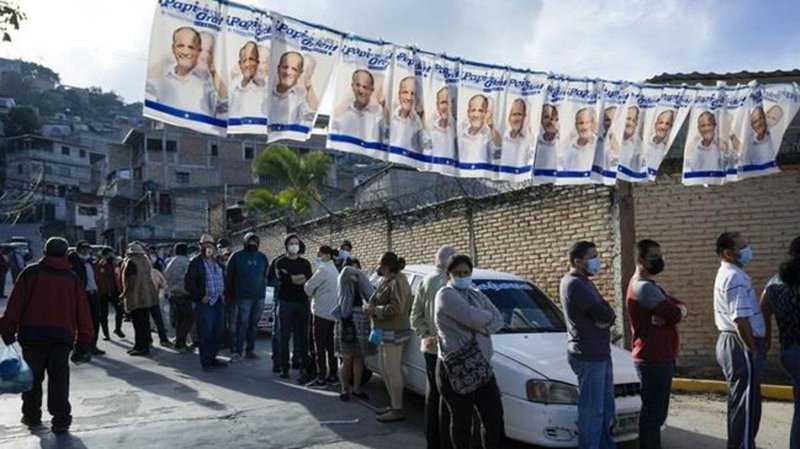
Leftist claims victory in Honduran vote, setting up showdown
TEGUCIGALPA, Honduras (AP) — Leftist opposition candidate Xiomara Castro claimed victory in Honduras’ presidential election Sunday, setting up a showdown with the National Party which said its candidate had won a vote that could end the conservative party’s 12 years in power.
“We win! We win!” Castro, Honduras’ former first lady who is making her third presidential run, told cheering Liberty and Re-foundation party supporters. ”Today the people have made justice. We have reversed authoritarianism.”
Preliminary results released late Sunday by the Electoral Council showed Castro with 53% of the votes and Asfura with 34%, but with just 16% of voting stations counted. The council said turnout was more than 68%.
Honduras’ long-ruling National Party announced on its Twitter account that its candidate, folksy Tegucigalpa Mayor Nasry Asfura, had won.
